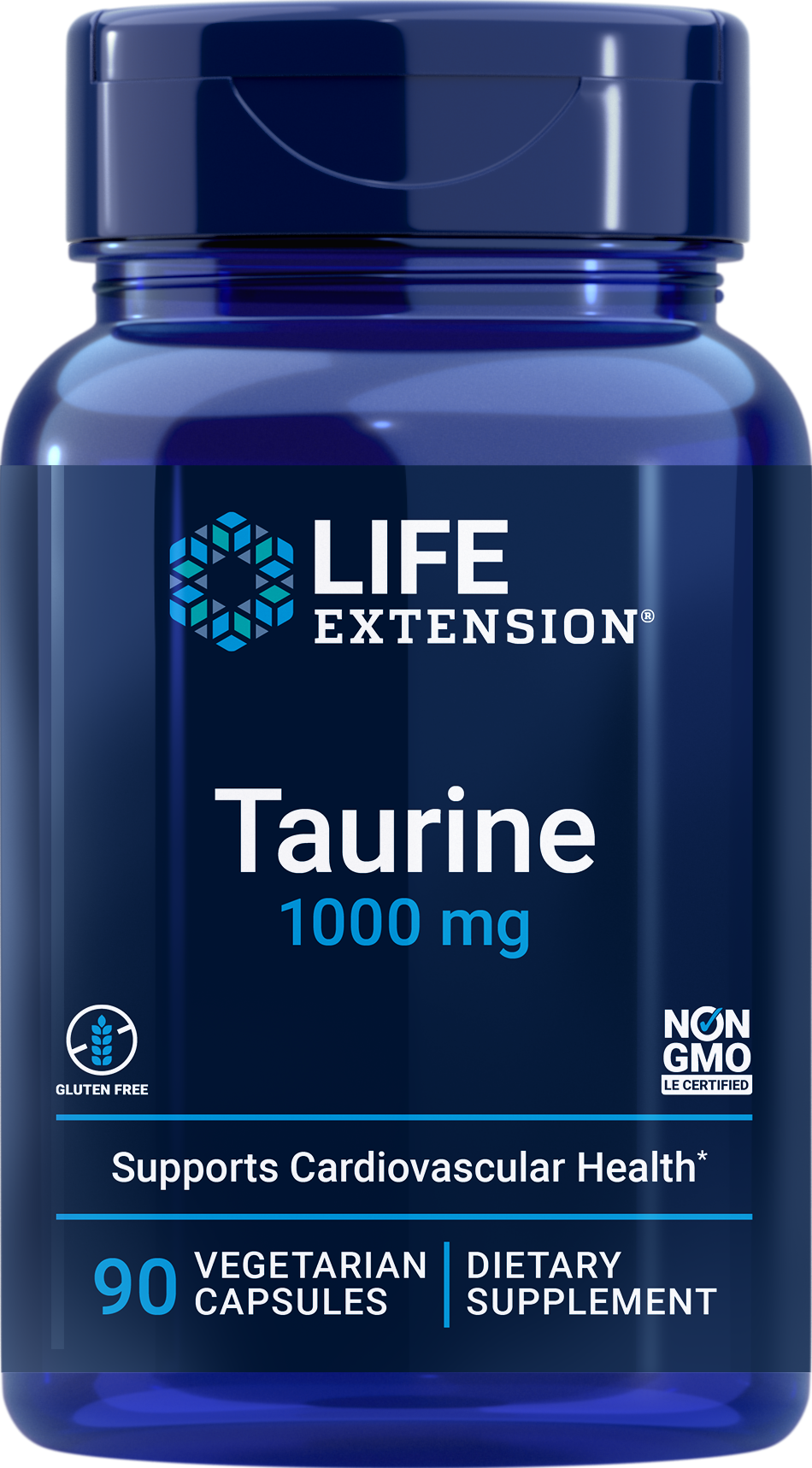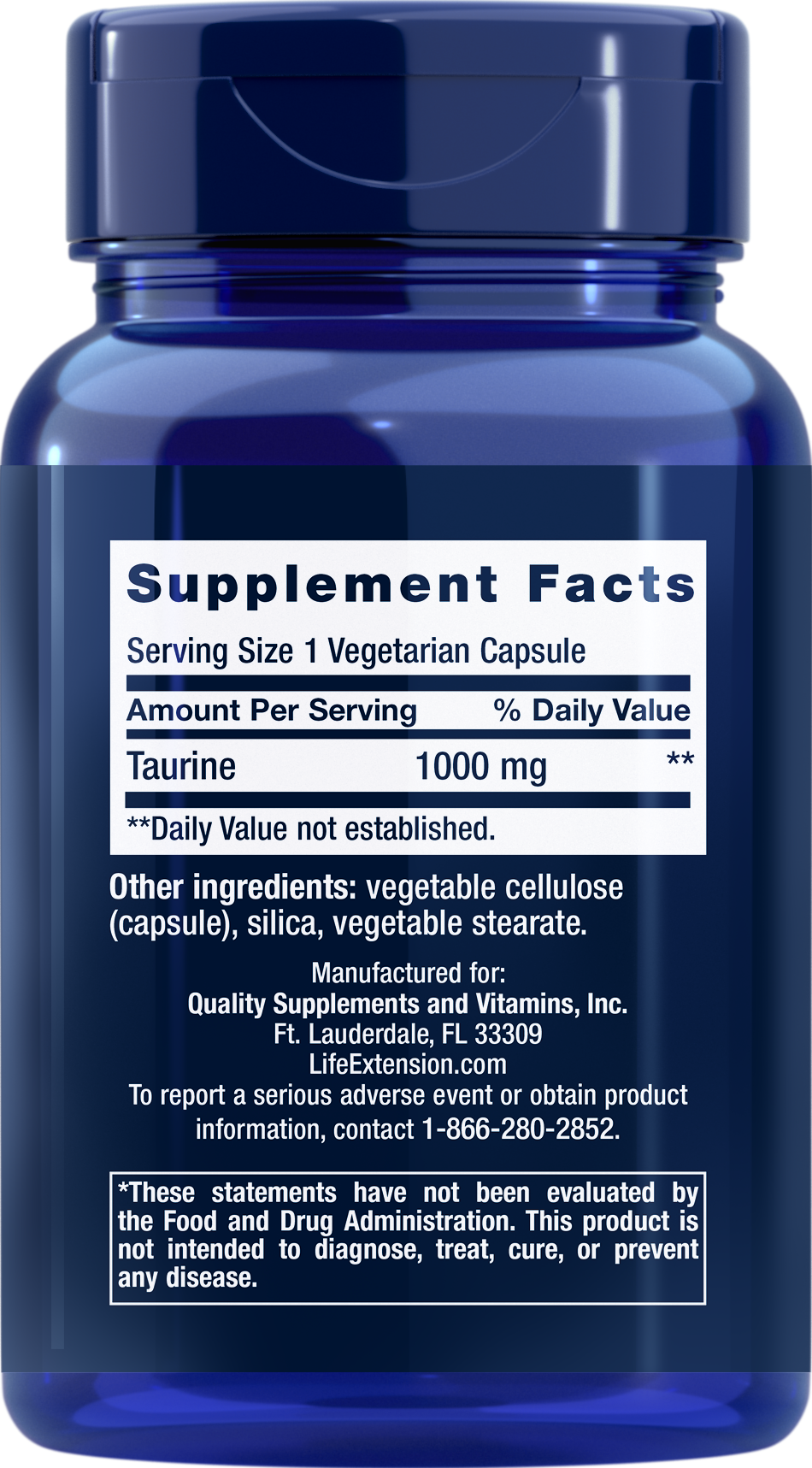Taurine
Taurine support for vision, liver function, nervous and cardiovascular system
Taurine
Taurine support for vision, liver function, nervous and cardiovascular system
For you, if you want to make sure you get enough of one of the most essential substances in the body
The ingredients in Taurine can:
- Help maintain healthy eyes
- Promote cardiovascular and cognitive health
- Support liver function
Taurine can support the vision and provide support for the cardiovascular- and nervous system as well as liver function and cognitive health.

on orders over € 69
We have a 100 days return policy, not the standard 30 days!
Order before 11:00 CET, for same day shipping (Mon-Fri)
We can help you in 6 languages
Health benefits at a glance:
Taurine supports the cardiovascular- and nervous systems, and can also promote liver and cognitive health.
Why it works:
Taurine is one of the most abundant intracellular amino acids in the body and is produced by the body itself. Produced from the amino acid L-cysteine, researchers have described it as “one of the most essential substances in the body.”
Taurine is found many places in the body but especially in the tissues of the central nervous system, where researchers indicate it has a regulating influence.
Studies also suggest that it has a cardiovascular and neuroprotective role, and can help maintain cardiac health in some aging people. It can also help support healthy liver function and support cognitive health.
Many diets do however not provide enough taurine, why it can be necessary to add this nutrient to your dietary regimen.
The science behind the product:
Even if the body can produce taurine on its own, it is still important to ingest it through diet and supplementation in order to attain better amounts of this nutrient.
Studies demonstrate that this nutrient can defend liver cells against free radicals and toxins, helping to reduce the severity of oxidative stress.
It has also been shown to promote cardiovascular health, insulin sensitivity, electrolyte balance, hearing function, and immune modulation.
Supplementation of this nutrient strengthens heart muscle cells and supports retinal and inner ear cells from damage by normalizing the flow of calcium ions they require for proper function. Furthermore, it supports healthy vision.
How to use:
Please take according to the dosage and use guidelines under supplement facts, or as recommended by a healthcare practitioner.
| ||||||||||
Dosage and use | ||||||||||
| ||||||||||
Warnings
| ||||||||||
- Ian Macleavy, 2013. The Forgotten Longevity Benefits of Taurine, Life Extension.
- Public Health Nutr., dic. 2006, 9(8A): 1136-40.
- Am. J. Prev. Med., nov. 2005, 29(4): 335-46.
- J. Am. Diet Assoc., mar. 2005, 105(3): 428-40.
- Nutrition, feb. 2005, 21(2): 131-6.
- Biochem. Biophys. Acta, 1 jun. 2004, 1682(1-3): 80-91.



